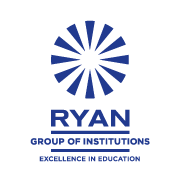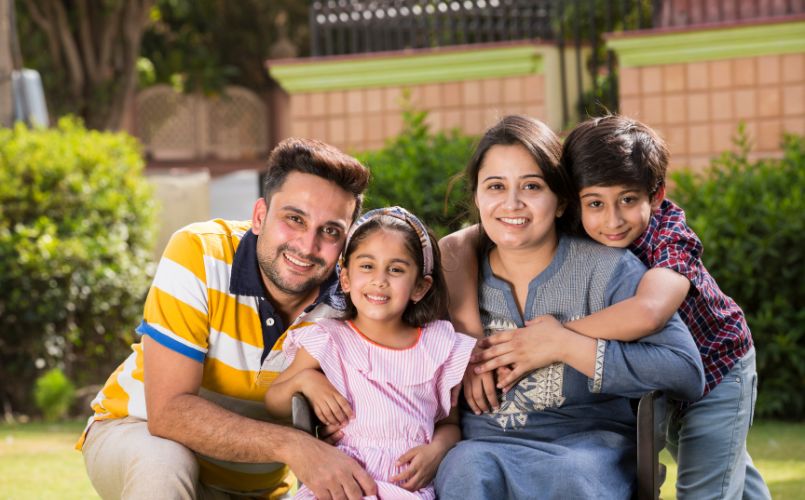Parenting is evolving rapidly, shaped by technological advancements. Traditional methods, while still invaluable, are being supplemented by smart devices and apps designed to streamline and enhance the parenting journey. These tools cater to a variety of needs, from monitoring a child’s health to aiding their educational development. The essence of smart parenting lies in its ability to integrate these technological aids into everyday parenting practices seamlessly, enriching the experience for both parents and children.
Among the most popular smart tools are sleep aids. These devices use gentle, rhythmic sounds and movements to soothe babies, emulating the calming environment of the womb. Their effectiveness in improving sleep patterns is not just beneficial for the baby’s development but also for the well-being of parents, often leading to better rest for the entire family.
Smart nutritional trackers are another key component of the modern parenting toolkit. These devices keep track of feeding schedules, nutritional intake, and even offer allergy alerts. In a world where dietary health is crucial, these trackers provide parents with the data and insights needed to make informed decisions about their child’s nutrition.
Educational apps have also gained significant traction. Tailored to various developmental stages, these apps offer interactive and engaging ways for children to learn and explore new concepts. Whether it’s language development, math skills, or creative expression, these apps make learning a dynamic and enjoyable experience.
They are not just gadgets; they represent a new era of parenting, where technology serves as a supportive partner in the challenging yet rewarding job of raising a child.
Diverse Smart Tools for Modern Parents
The arsenal of smart parenting tools is as diverse as it is innovative, catering to a wide range of parenting needs. These tools not only simplify daily routines but also enrich the parenting experience with their multifaceted functionalities.
Key Categories of Smart Parenting Tools:
- Sleep Aids: Devices that mimic calming environments to improve babies’ sleep patterns. They often come with features like white noise generation and gentle rocking. The concept of white noise for babies is based on the similarity to the sounds they hear in the womb.
- Nutritional Trackers: Apps and devices that monitor a child’s dietary intake and feeding times, ensuring balanced nutrition. As per pediatric nutritionist Dr. Emily Collins, “In the world of child nutrition.
- Educational Apps: Interactive applications that make learning fun and engaging for children of all ages. Enhances cognitive skills, language development, and creative thinking.
- Health Trackers: Wearable devices that monitor vital signs like heart rate and temperature, alerting parents to potential health issues. The first wearable health tracker for babies was introduced in the early 2010s, revolutionizing how parents monitor their child’s well-being.
Each category of smart tool addresses specific aspects of parenting, from ensuring a child’s physical health to nurturing their mental and emotional growth. The common thread among all these tools is their ability to provide parents with peace of mind and actionable insights into their child’s development.
The impact of these tools extends beyond mere convenience; they represent a paradigm shift in parenting. By leveraging technology, parents can now approach various aspects of child-rearing with more confidence and less stress, knowing they have the support of these smart solutions.
Enhancing Child Development with Smart Tools

Smart parenting tools are more than just gadgets; they are catalysts for positive change in a child’s development. These tools offer a multitude of benefits, from aiding in physical health to fostering cognitive and emotional growth.Broad-Spectrum
Benefits of Smart Parenting Tools:
- Improved Sleep Patterns: Smart sleep aids contribute significantly to a child’s development by ensuring better sleep quality. Adequate sleep in early childhood is linked to improved attention, behavior, and learning, according to child development experts.
- Optimized Nutrition: Nutritional trackers help in creating balanced diets tailored to a child’s growing needs. Tracks feeding schedules, nutrient intake, and provides allergy alerts.
- Interactive Learning: Educational apps offer an engaging and stimulating way to learn, making education more accessible and fun. Educator Maria Gonzalez says Educational apps transform the learning experience, making it personalized and captivating
- Health Monitoring: Health trackers keep a close eye on vital signs, offering early warnings of potential health issues, monitors heart rate, temperature, and even sleep patterns.
The integration of these tools into daily parenting practices does not just ease the responsibilities of parents but significantly contributes to the holistic development of the child. These tools bridge the gap between traditional parenting methods and the technological advances of the modern world.
This synergy of technology and parenting is a testament to the endless possibilities that arise when innovation meets care. The path of parenting becomes not only more manageable but also more rewarding, nurturing a future generation that is healthier, smarter, and more connected.
Navigating Challenges in Smart Parenting
While smart parenting tools offer numerous benefits, navigating their use presents unique challenges. It’s crucial for parents to be aware of these considerations to effectively balance technology with traditional parenting.
Key Challenges and Considerations:
- Over-Reliance on Technology: There’s a risk of becoming too dependent on these tools, which may hinder hands-on parenting experiences. “Technology should assist, not replace, the human elements of parenting,” observes child development expert Dr. Lisa Chang.
- Data Privacy and Security: As many smart tools collect and store personal data, concerns about privacy and security are paramount. Choose devices and apps with robust privacy policies and security measures.
- Managing Screen Time: With educational apps, regulating screen time is essential to prevent negative impacts on a child’s health and behavior. The American Academy of Pediatrics recommends limiting screen time to one hour per day for children aged 2 to 5 years.
- Accessibility and Cost: High costs can limit access to these tools, creating disparities in parenting experiences and resources. Advocating for more affordable and accessible smart parenting tools is crucial.
Understanding and addressing these challenges is a key to maximizing the benefits of smart tools while minimizing potential drawbacks. It’s about finding the right balance, where technology enhances rather than dictates the parenting experience.
As we continue to integrate smart tools into our parenting toolkit, it’s vital to stay informed, be critical of our choices, and always prioritize the wellbeing and development of our children. By doing so, we can harness the power of technology to enrich our parenting journey, while keeping the essence of traditional parenting alive.
Real-World Success Stories and Expert Opinions
The true value of smart parenting tools becomes evident through real-world success stories and the insights of experts. These narratives and opinions highlight how effectively integrating technology into parenting can lead to remarkable outcomes.
Impactful Stories and Expert Perspectives:
- Success Stories: Many parents have shared transformative experiences with smart tools. One mother recounts how a sleep aid not only improved her baby’s sleep patterns but also reduced her own stress and anxiety, leading to a happier household. “This device didn’t just soothe my baby; it brought peace to our entire home,” she says.
- Expert Insights: Child psychologists and tech experts emphasize the importance of using these tools as aids, not replacements, for traditional parenting methods, enhances parenting, but doesn’t replace the emotional and physical connection crucial for child development.
- The Future of Smart Parenting: Experts predict a continued rise in the use and sophistication of these tools, with potential for even greater impact on parenting and child development. Research indicates that the market for smart baby monitors and related parenting tools is expected to grow significantly in the coming years.
The stories and insights converge on one point: smart parenting tools, when used judiciously, can be powerful allies in the parenting journey. They offer a glimpse into a future where technology and traditional parenting coexist in harmony, each enhancing the other.
The experiences of others and the guidance of experts can serve as valuable roadmaps. They remind us that at the heart of all these technological advancements lies the unchanging essence of parenting – love, care, and the relentless pursuit of what’s best for our children.




